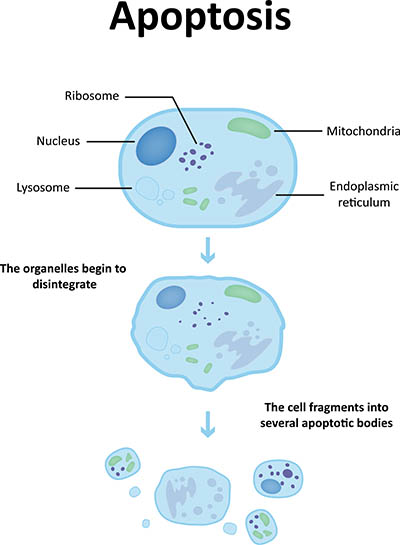Most peop
le know melatonin as the sleep hormone. And that’s right. It helps your body cycle down every night so you can rest.
But melatonin is so much more than that…
It’s also one of your body’s most powerful cancer killers. Studies show melatonin boosts the immune system. It protects against the toxic side effects of chemo and radiation. It improves wound healing after surgery. And it even increases cancer survival rates.1
And new research proves that melatonin suppresses the growth of breast cancer tumors.
How does melatonin affect breast cancer?

Mammograms detect cancer.
In a lab at Michigan State University, researchers grew breast cancer tumors called “mammospheres.” They fed the tumors with chemicals that we already know fuel growth. They used real estrogen and fake estrogens like bisphenol A (BPA), the toxic chemical found in plastics and thousands of household items.
Treating the cells with melatonin reduced the number and size of the tumors.
In other words, melatonin inhibits cancer cell growth.
And it works in real people, too.
In one study, patients with glioblastoma, a type of brain cancer, were given either radiation alone, or radiation and melatonin. After one year, 23% of the melatonin patients were still alive. But none of the radiation group survived.2
It’s the same with chemo. Doctors in Italy gave melatonin to lung cancer patients who didn’t respond to chemo. A year later, 26% of the patients who took melatonin were still alive. None of the others survived.3
Studies also show melatonin:

- kills cancer cells
- induces apoptosis (cell self-destruction)
- slows tumor growth
- cuts off tumor blood supply
- blocks the effects of estrogen on cancer cells
- and works as an antioxidant to stop cancer from developing
Unfortunately, your natural melatonin levels slowly drop with age. And if you take beta blockers, aspirin or non-steroidal anti-inflammatory drugs (NSAIDs), they drop even more.
Natural Ways to Boost Your Melatonin
But there are easy ways to boost your melatonin. Here’s what I recommend to my patients:
- Get some natural sunlight every day. Sunlight during the day, especially in the morning, triggers your pineal gland to produce melatonin while you sleep. To make the most of it, skip the sunglasses and avoid artificial light in the early morning.
- Eat melatonin-rich foods. Tropical fruits help boost melatonin. Pineapples have been shown to increase blood levels by 266%. Bananas boost it by 180% and oranges by 47%. Other foods that increase melatonin include tart cherries, ginger, tomatoes and mangosteen.
- Keep your bedroom dark. Any light at all, no matter how little, can disrupt the production of melatonin. Make sure you don’t leave the TV on in your bedroom. Lights in the room while you sleep can suppress melatonin by more than 50%. So get rid of the night-light. And if you can’t get your room completely dark, wear a sleep mask.
- Take melatonin supplements. Melatonin is widely available in health food stores. I recommend about .3 mg a day. Take it about 20 minutes before you want to fall asleep.
But get the right kind…
The Most Effective Way To Take Melatonin
When you take melatonin by mouth, it breaks down in the liver. Most of it never gets into your bloodstream. It’s important to use a spray, drops, or a sublingual tablet. They’re easier to absorb and work faster.
To Your Good Health,
![]()
Al Sears, MD, CNS
1.Eileen M. Lynch, PhD “Melatonin and Cancer Treatment.” Life Extension Magazine, January 2004.
2. Lissoni P, Meregalli S, Nosetto L, et al. “Increased survival time in brain glioblastomas by a radioneuroendocrine strategy with radiotherapy plus melatonin compared to radiotherapy alone.” Oncology. 1996;53(1):43-6.
3.
Lissoni P, Chilelli M, Villa S, Cerizza L, Tancini G. “Five years survival in metastatic non-small cell lung cancer patients treated with chemotherapy alone or chemotherapy and melatonin: A randomized trial.”
J Pineal Res. 2003;35:12-15.
Johns NP,
4.
Johns J, Porasuphatana S, Plaimee P, Sae-Teaw M. “Dietary intake of melatonin from tropical fruit altered urinary excretion of 6-sulfatoxymelatonin in healthy volunteers.” J Agric Food Chem. 2013;61(4):913-9.
5.
Joshua J. Gooley et al, “Exposure to Room Light before Bedtime Suppresses Melatonin Onset and Shortens Melatonin Duration in Humans.” J Clin Endocrinol Metab. 2011; 96(3): E463–E472.

